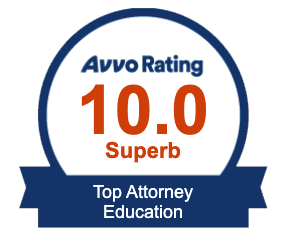After practicing special education law for more than 30 years, you can understand why parents are cynical about a school system’s ability to provide a free appropriate public education for their child. Why do we begin? You can start when parents are introduced to the special education world. They receive a manual, brochure or documents which attempts to explain their parental rights under the law. Well, In Georgia, for example, the readability of the State Department’s Education’s parental rights manual is about 14 years of school. this means you must at least two years of attending a college or university before you can understand the parent’s rights manual. Many of y clients do not have two years of college or university. Even if they did, the parental rights are written in a way that only a college professor or Ph.D. can understand it – at least most of the parental rights. The next that gets stuck under the parent’s nose is a consent to evaluate. The school tries to explain to the parents what tests will be administered to the child. It sounds like alphabet soup. What is WISC? What is a WIAT? What is WRAT? And the list goes on and on. . . . How many parents truly understand each of the types of tests that are administered and what the scores mean? The parents then are invited to an eligibility meeting. The school staff go through a list of the child’s strengths and weaknesses, levels of performance, testing results, personal observations, medical reports and so forth. At the end of the day, the school system either qualifies the child for special education and related services or denies it. And what happens to those children that do not qualify under the IDEA but qualify for special education or related services under Section 504? Does you school system explain to you the difference? Probably not. And how does the school staff determine whether the child’s disability adversely affect the child’s educational performance and is in need of special education and related services? Do they flip a coin? They might as well since many administrative law judge and state and federal court judges cannot figure out whether the child should qualify under the IDEA for special education and related services. After all of this, the parents are invited to an IEP meeting where they are surrounded by 10-15 professionals who also speak alphabet soup. Get the picture by now? The parents are often excluded from the IEP meeting because they cannot understand the jargon of the educators. Do we have a book entitled “Writing IEPs for Dummies?” if not, then someone needs to write this book. Parents are tormented by the IEP process. Some IEP meetings last 15 minutes and others last nine hours or more. We know that some IEP meetings get out of hand and are counterproductive. This is where communication and trust has broken down between parents and school systems. I would like to say that most of the IEP meetings that I attend are productive and cordial. Yet I hear of so many IEP meetings that parents attend that are not like this. Do you think that having an attorney at an IEP meeting helps?
Assuming the parents survive the IEP meetings and move forward to the school year, you often wondering what is really going behind the school doors. Complaints abound concerning physical abuse and neglect of children with disabilities in public schools. Nonverbal children definitely suffer more because they cannot speak up and secure help. You may never really know how much abuse occurs at any school. All you can do is worry constantly and hope for he best. This is no way to run a school system. After all is said and done, the parents meet to develop an IEP and then hope that child reaches the promised land – wherever what might be.
In the event a parent objects to the IEP and refuses to consent to placement, the parent may file a request for a due process hearing. Many parents are unrepresented at the due process hearing without legal counsel. Filing for due process can be a very convoluted procedure for most parents and they get hung upon on the procedural complexities of the case. What is the five-day rule? What is a witness list? What documents do I need to submit to the court? Do I need an expert? These are just a few land mines that are hidden in due process cases. For parents that cannot secure a lawyer for a due process hearing, the chances are success are slim to none. In Georgia, parents with attorneys do mot fare much better. I found a track record on one administrate judge who has ruled 9-0 in favor of school systems. I would say this is poor bating average for parents. It makes you wonder if there is any bias against parents in the legal system but that is a story for another day. School systems battle with parents and will try to bleed them dry by filing numerous motions and throwing everything but the kitchen sink against them. You wonder why parents (and me too) are cynical about the special education process. It is easy to become frustrated and then very angry against school systems. Who can blame parents for this? I cannot because I am becoming increasing angry at the horror stories I hear each week from parents about how school systems are treating their children. So we better stop becoming so cynical and use our resources wisely to take on the big bad boy school systems that are harming your children.

